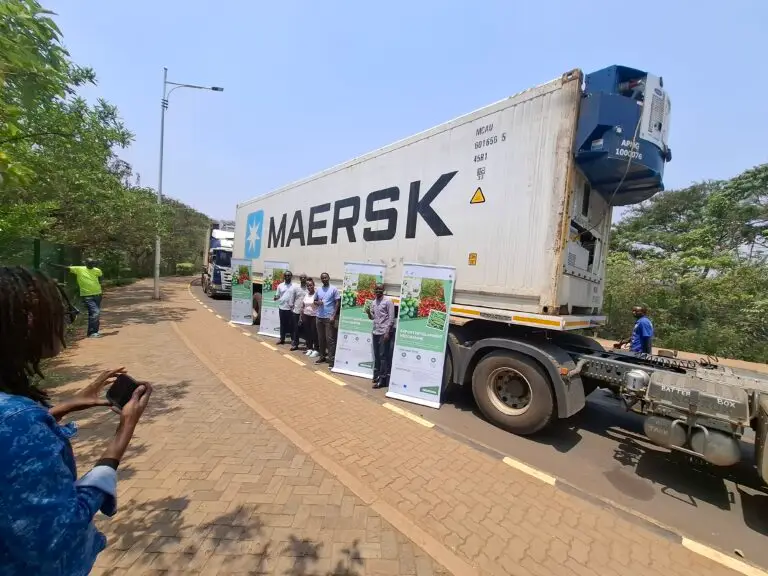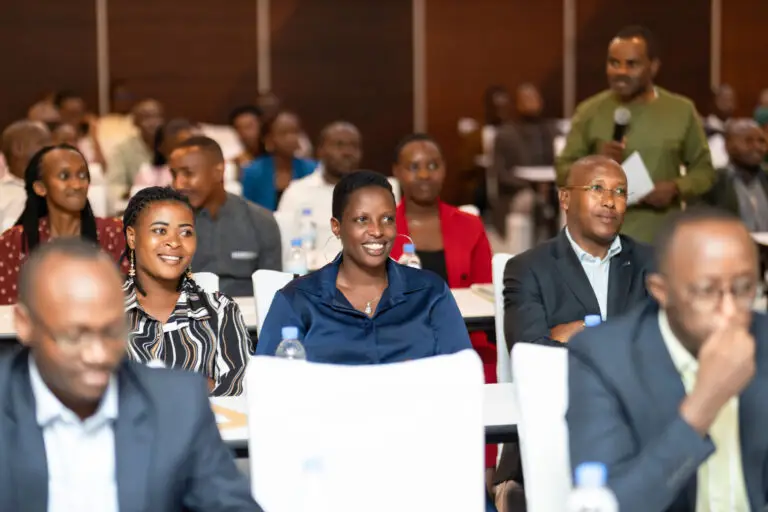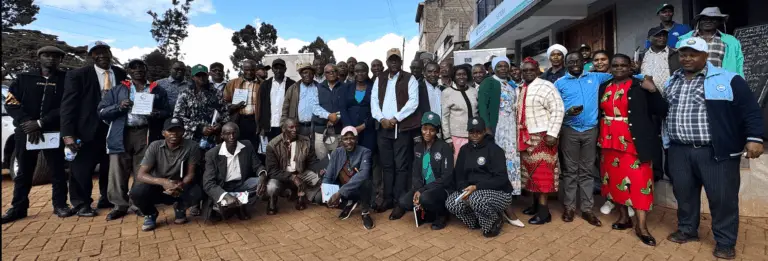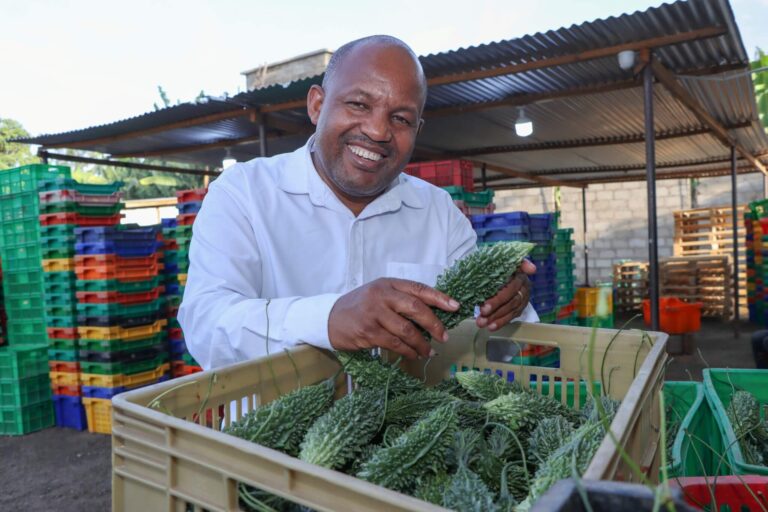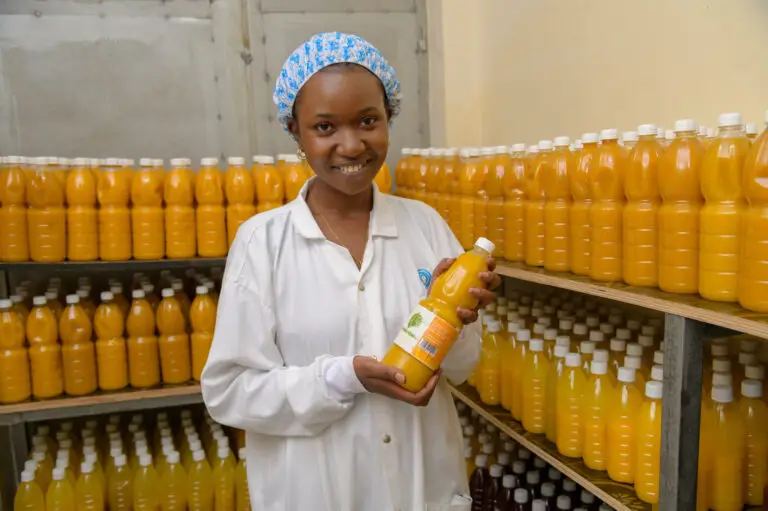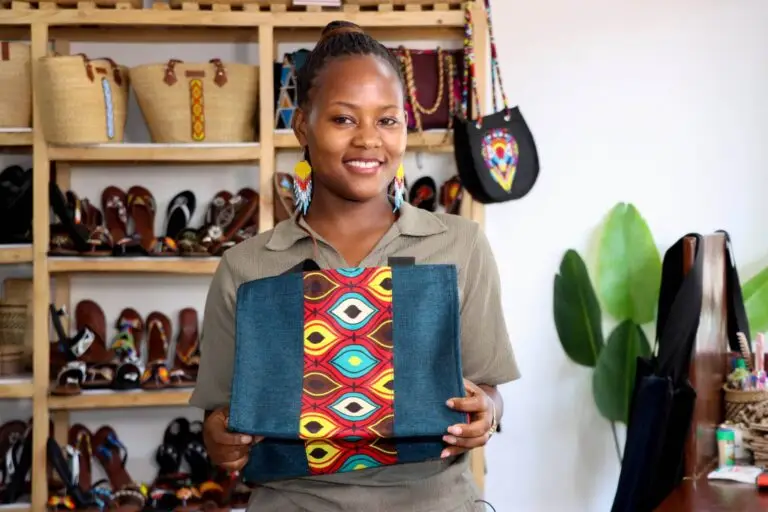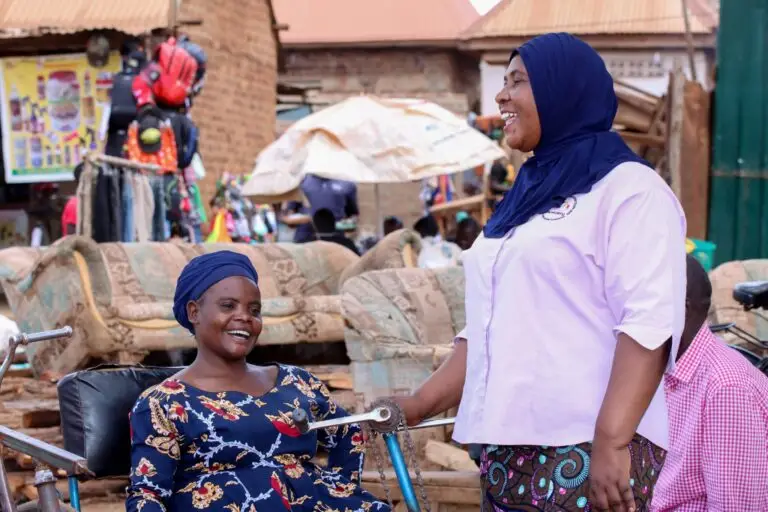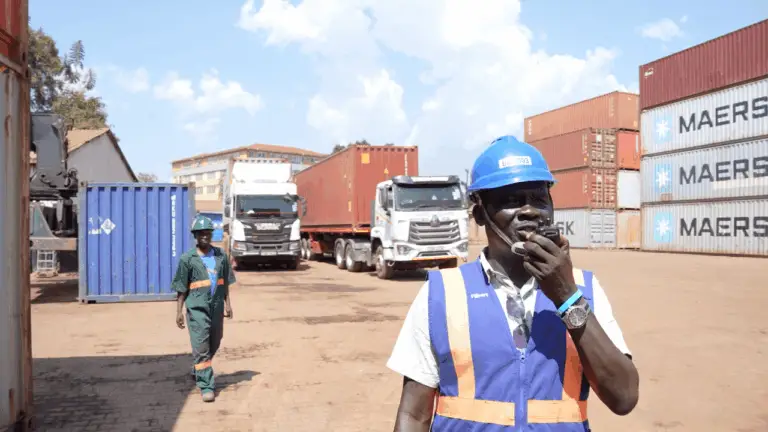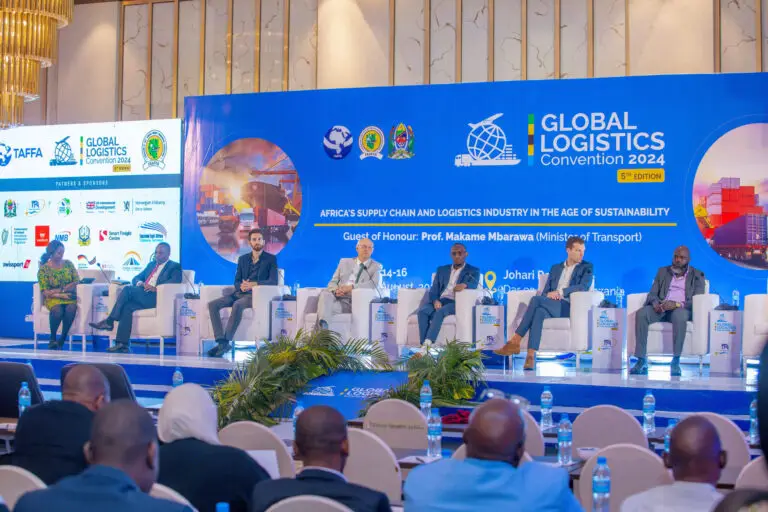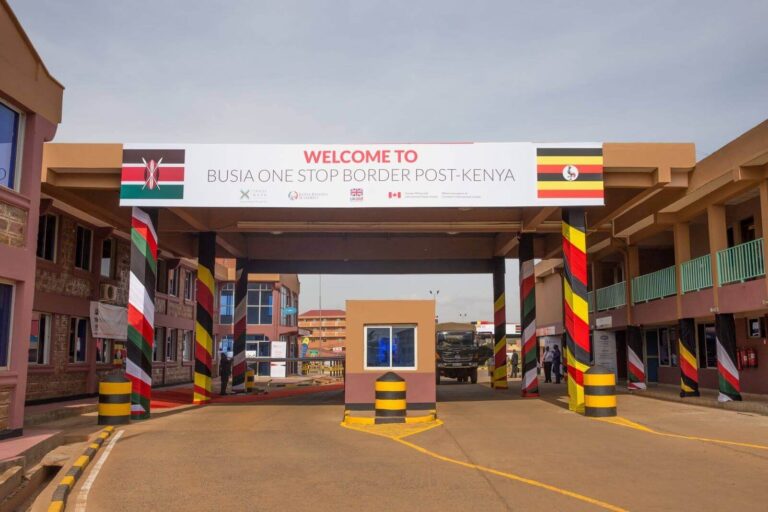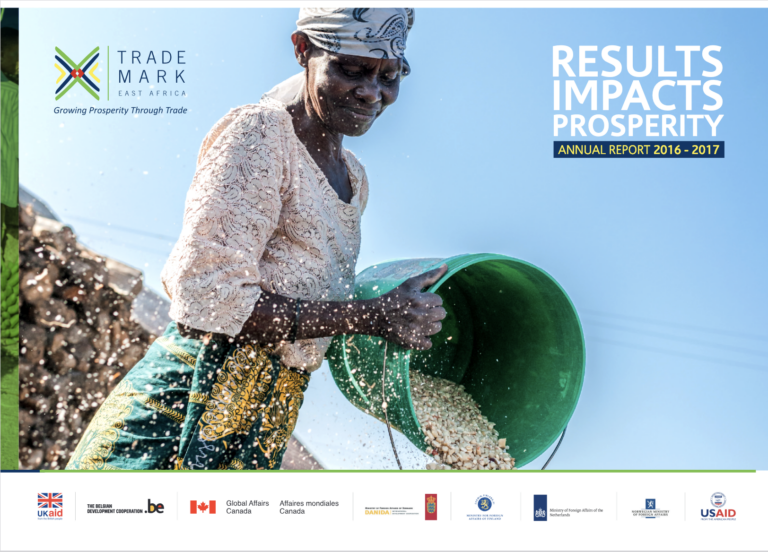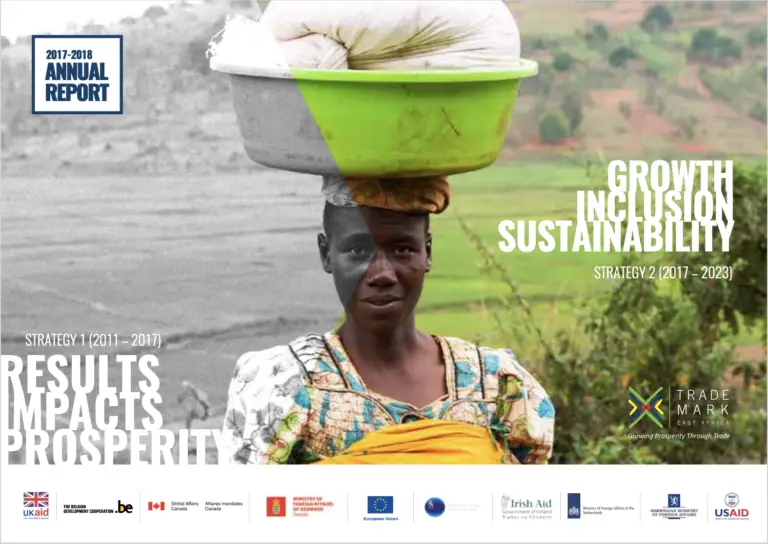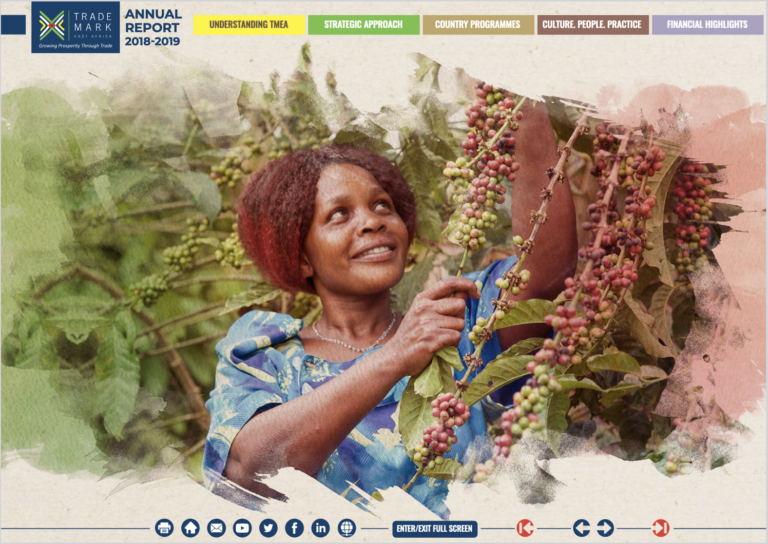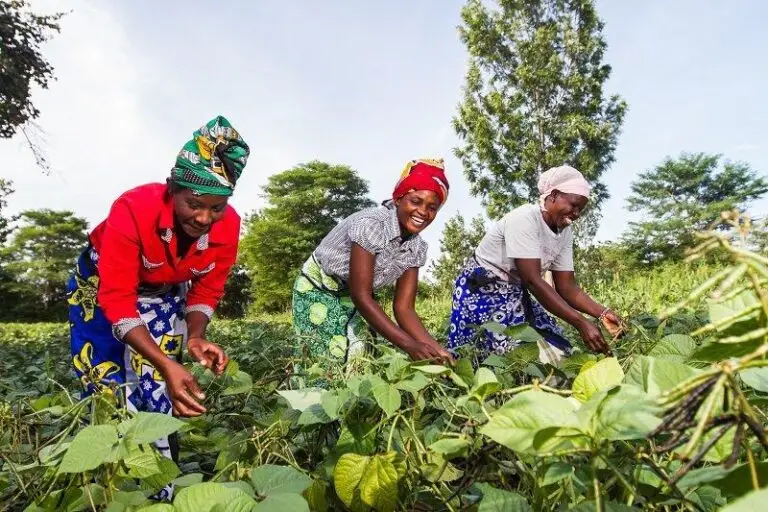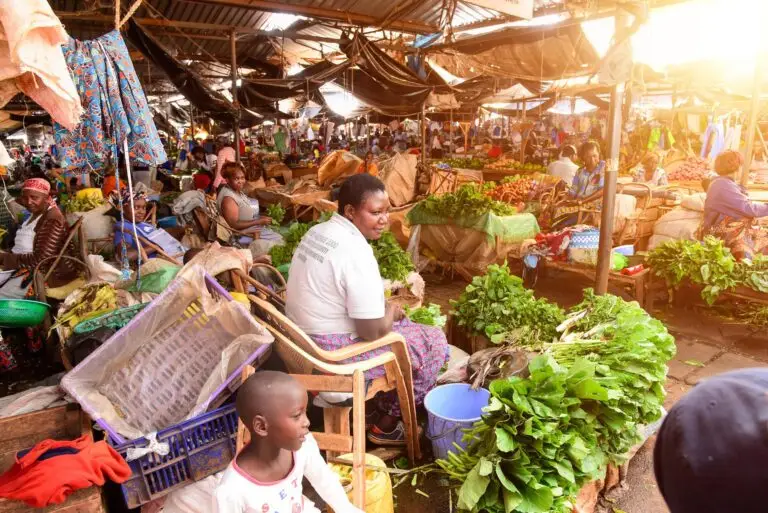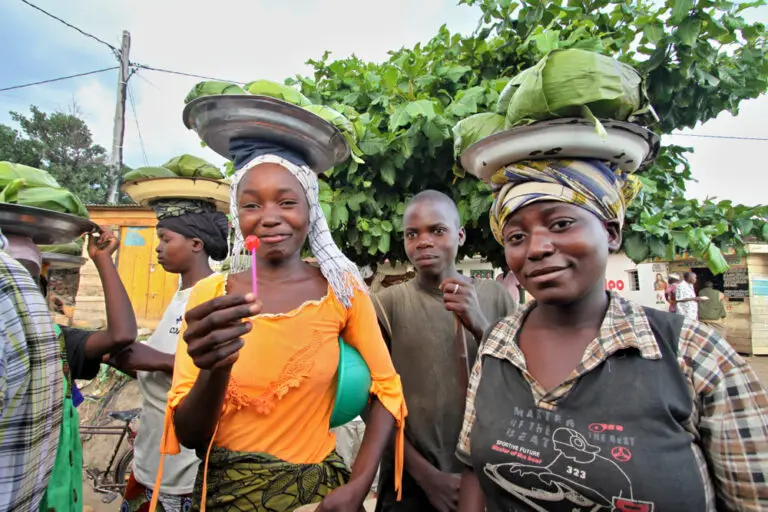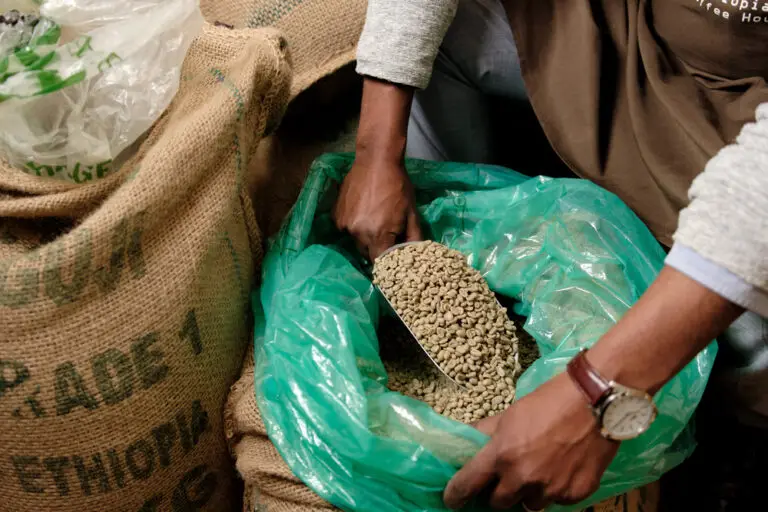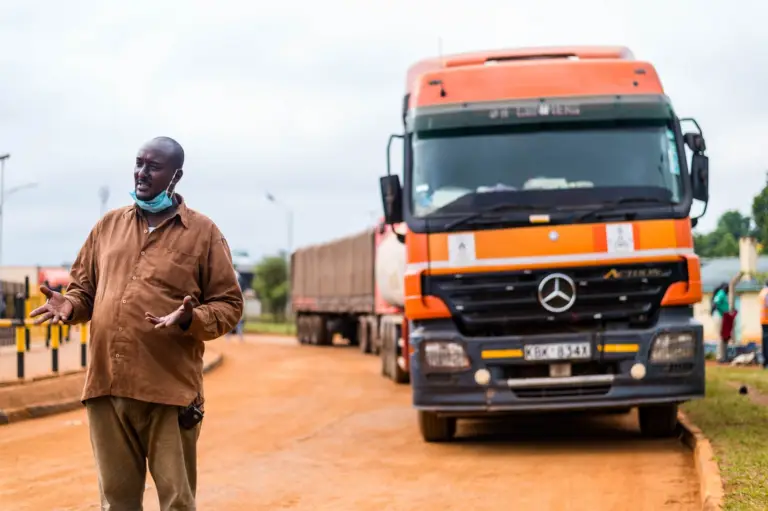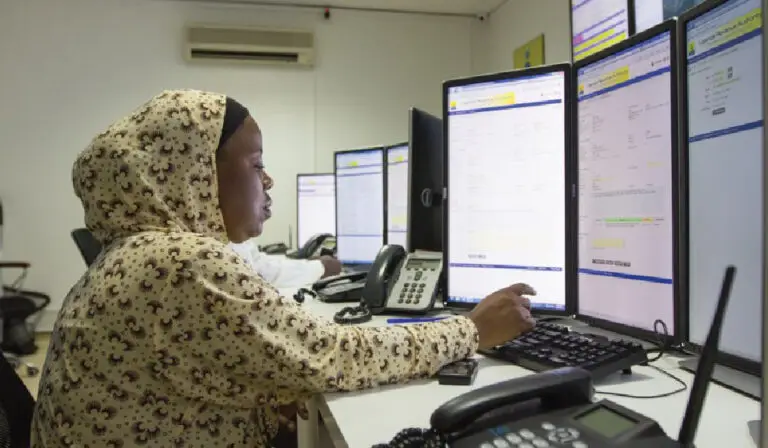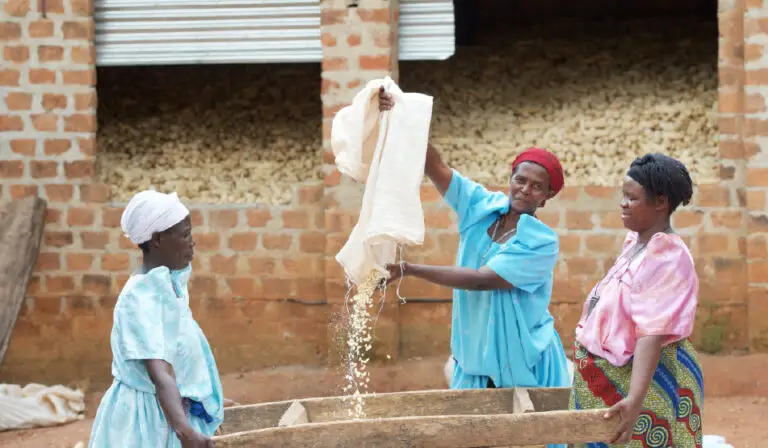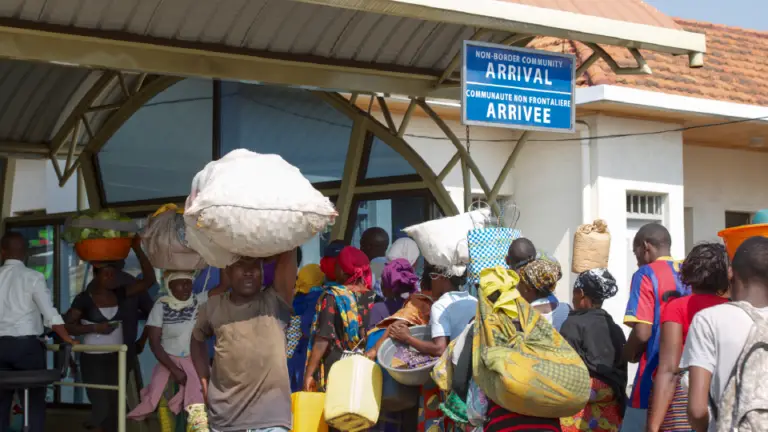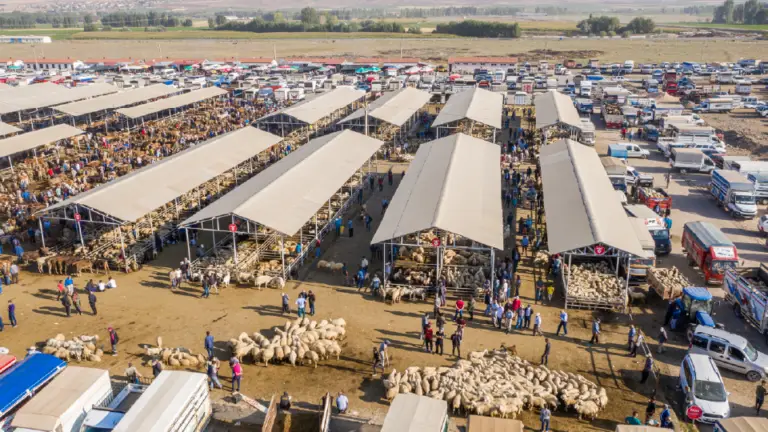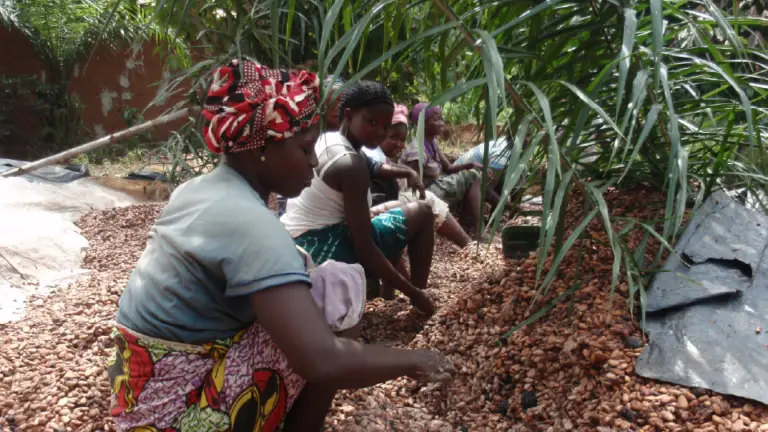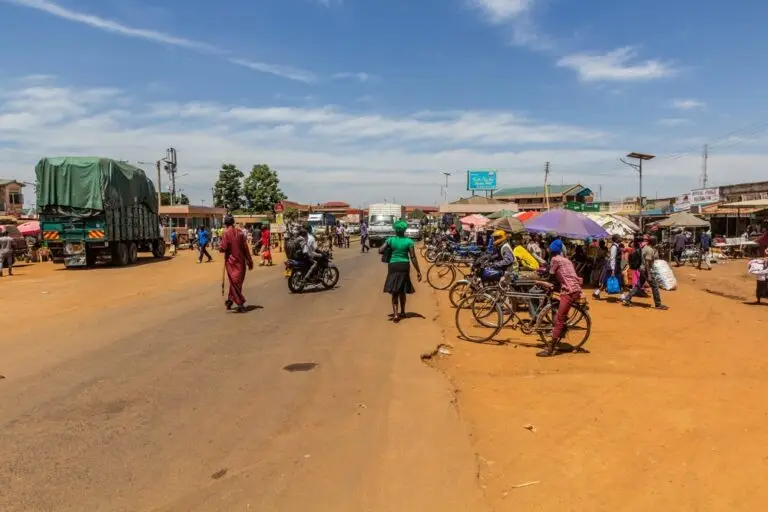Quick Stats
Uganda
50 Million (2024)
$54 Billion (2024)
2011
Northern
Gold (44%), Coffee (14%), Refined Petroleum (2%)
- Population and GDP size- World Bank Data – https://data.worldbank.org/indicator
- Trade- OEC- https://oec.world/en/profile/country/
Uganda plays a critical role as a transit and logistics gateway for East and Central Africa, linking regional markets across South Sudan, Kenya, Rwanda and the Democratic Republic of Congo. With a GDP of
$53.6 billion for FY 2023/24 (Ministry of Finance Planning and Economic Development), the country has maintained a steady economic growth averaging 6.1% annually over the past decade, a rate that contributed to meeting the first Millennium Development Goal target of eradicating extreme poverty and hunger.
241,551 sq
kms
50 Million people
Despite this progress, Uganda faces a number of economic challenges. The country continues to run a high trade deficit and the cost of doing business remains steep, due to underdeveloped infrastructure, low-value addition in sectors like agriculture, and limited industrial capacity.
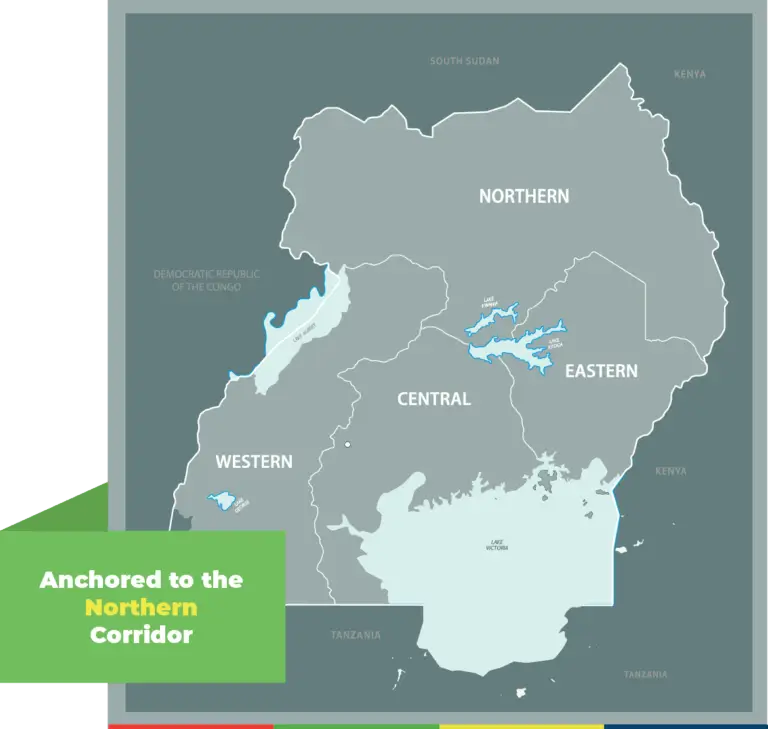
Anchored to the Northern Corridor
These factors have slowed job creation and stalled efforts to bring more people out of poverty, which still affects just over 20% of the population.
To tackle these issues, the Government of Uganda has introduced a clear development agenda. Strategies such as the Fourth National Development Plan (NDP IV) and the 10-Fold Growth Strategy set out a roadmap to improve productivity, expand the country’s export base, and attract investment through stronger trade links.
Early Milestones
Since 2011
Since 2011, TMA has supported Uganda’s Vision 2040 and its commitments to the African Continental Free Trade Area (AfCFTA), and East African Community (EAC) Regional Integration frameworks. The programme spanned high level policy reforms and practical on-the ground fixes, aimed at improving border efficiency and logistics performance, as well as building a trade-enabling infrastructure, while bolstering the regulatory and standards environment for Ugandan businesses.
Working alongside the Uganda Revenue Authority, TMA facilitated development and roll out of the Uganda Electronic Single Window, a digital platform that now integrates over 30 government agencies reducing transaction time and costs for businesses by an average of 50%. At Uganda’s borders with Kenya, DRC, Rwanda, and Tanzania, the construction and upgrading of One Stop Border Posts, that is Malaba, Busia, Mutukula, Elegu, Goli, and Kagitumba was completed resulting in significantly reduced crossing times. In Western Uganda, the Ntoroko lake port and Goli OSBP are easing cross-border movement with the DRC, slashing queuing times by up to 40%.
Further inland, the Gulu Logistics Hub, completed in 2024 provides warehousing, customs, and inland container handling services, reducing transit times and decongesting the region’s road corridors. Meanwhile, over 23,000 Ugandan women traders were supported to move to formal trade routes, with many now using the iSOKO digital platform to access new markets across Uganda, Rwanda, Tanzania, and Burundi
TMA Strategy 3
2023 - 2030
Strategic priorities until 2030 are clustered around the following portfolios:
Resilient and Inclusive Trade
Digital Trade Systems
Trade and Investment Environment
Value and Quality of Traded Goods
Physical Infrastructure
- Supporting the construction of smart borders, including the climate-resilient Elegu Cross-Border Market.
- Digital transformation of trade systems, such as scaling up the Uganda Electronic Single Window and e-certification systems in other Government agencies involved in trade, while at the same time, reviewing and integrating the non-tariff barrier platform with the EAC system to streamline border processes and reduce trade costs.
- Partnering with the Uganda National Bureau of Standards (UNBS) to strengthen the country’s compliance with international standards and sanitary and phytosanitary (SPS) measures to support export growth. This includes: advancing policy frameworks that promote the uptake of sustainable products together with harmonisation of standards; and equipping regional laboratories with rapid testing infrastructure to enhance the speed, reliability, and affordability of conformity assessments. Thus, benefiting in particular, small and medium-sized enterprises, by reducing delays, lowering the cost of compliance, and improving access to high-value regional and global markets.
- Inclusive trade that empowers women, youth, and smallholder entrepreneurs, particularly in cross-border trade and agricultural value chains
Results:
1. 79% reduction of import/export processing time from nine days in 2014 to two in 2021, resulting to lower processing costs for traders.
2. 45% drop in document processing costs, contributing to higher margins for SMEs and greater price competitiveness.
Results:
1. Product-testing time has dropped from 40 days in 2018 to 17 in 2023, giving businesses a faster route to market.
2. Cost of testing product samples reduced from $79 in 2020 to $17 in 2023.
Results:
1. 63% reduction in customs processing time at Goli OSBP from 8 hours in 2019 to 3 in 2024.
2. 81% reduction in customs clearance time at Ntoroko Lake Port from 9 hours to 1 hour as a result of TMA’s Iintegrated border management intervention.

COUNTRY DIRECTOR, UGANDA
Anna is an accomplished leader in international law and trade development, with over two decades of legal and regulatory experience. In her capacity at TMA, she leads a portfolio that includes infrastructure development, agro-industry growth, digital innovation, green trade, standards harmonisation, private sector engagement, and policy reform across key regional trade corridors.
Prior to joining TMA, Anna held advisory roles in major World Bank-funded initiatives, including serving as legal expert for the Regional Communication Infrastructure Project (RCIP) at Uganda’s National Information Technology Authority (NITA-U) and leading legal efforts on Uganda’s Business Licensing Reform Project. She also played a central role in coordinating Uganda’s Doing Business reforms under the Ministry of Finance, Planning and Economic Development (MoFPED).
She holds a Bachelor of Laws (LL. B) from Makerere University, a Postgraduate Diploma in Legal Practice from the Law Development Centre, and a master’s of law (LL.M) in International and Comparative Law from The George Washington University Law School.


